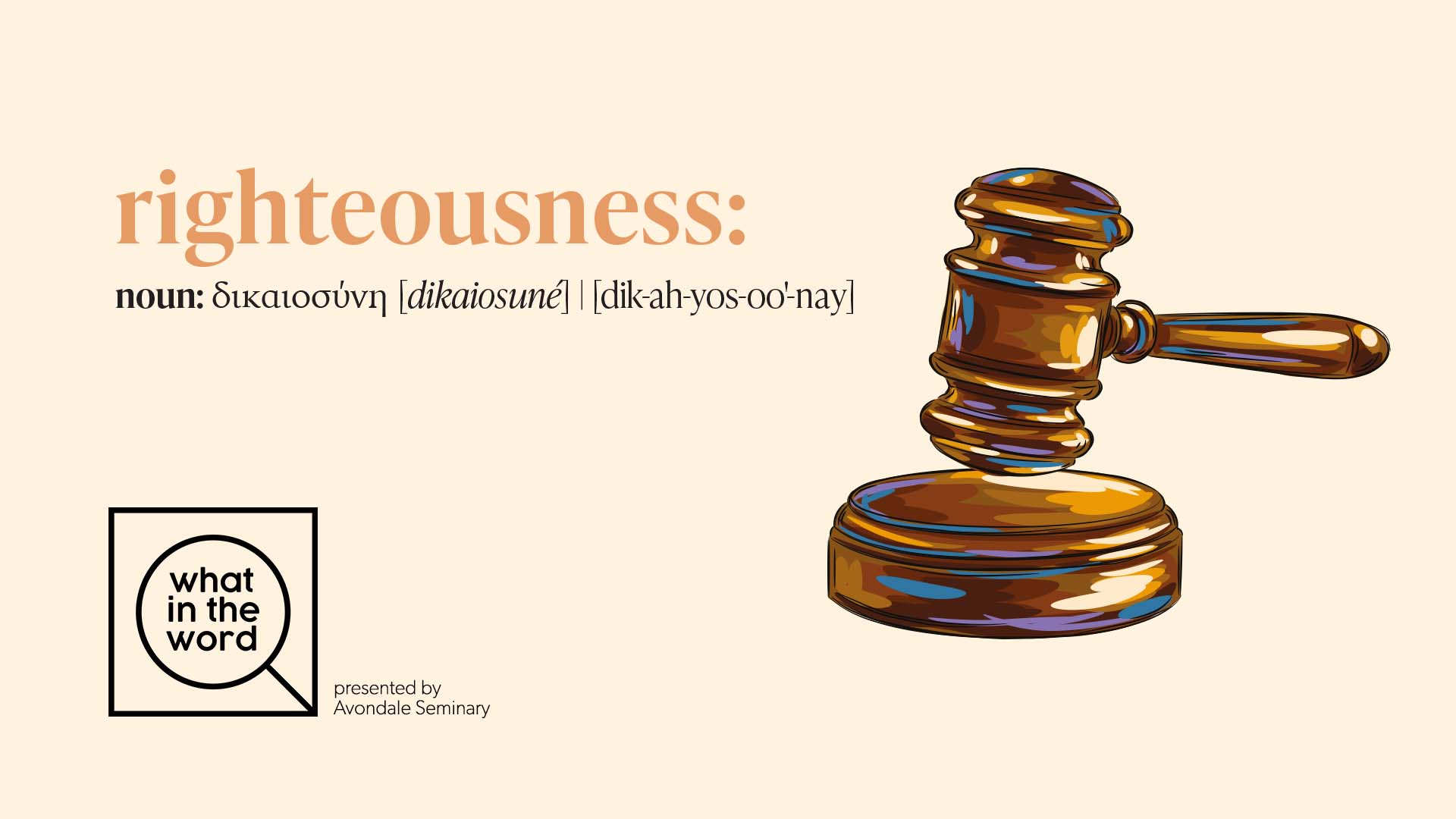Righteousness is an important concept in Paul’s letters in the New Testament. He uses it to describe the grounds, the process and the results of salvation that has been made available to us by the death of Jesus (eg Romans 1:17; 3:21-26; Galatians 3:6-9; 5:5; Philippians 3:9 etc).1 Paul is, in fact, the main user of the words associated with righteousness in the New Testament, although they are also found in the Gospel of Matthew, James, 2 Peter and Revelation.
In secular Greek writings, the terms “righteous” and “righteousness” are used of ethical and moral behaviour, the correct behaviour of judges deciding legal cases, and the status of those who have been declared not guilty by judgement of law.2 Each of these uses of the concept may be found in the Bible.
Judgement and righteousness stand close together in the Bible. For example, Ecclesiastes 3:17 states that, “God will judge the righteous and the wicked, for he has appointed a time for every matter, and for every work.”* God is repeatedly identified in the Bible as the righteous Judge (Psalm 7:11; Jeremiah 11:20, 2 Timothy 4:8, Revelation 19:11), and is said to judge with righteousness (Psalms 9:8; 72:2; 96:13; Jeremiah 11:20). As a consequence, the ideal king is expected to judge with righteousness (Isaiah 11:4).
The link between a positive outcome from judgement and the declaration of righteousness emerges in the story of Jesus’ arrest and trial. While Pilate was in the process of determining the fate of Jesus, even as he “was sitting on the judgement seat, his wife sent word to him, ‘Have nothing to do with that righteous man” (Matthew 27:19 RSV). The New Revised Standard Version translates “righteous man” in Matthew 27:19 as “innocent man”.
Indeed, the term “righteous” is used to describe those who have been declared “not guilty” in judgement. This is dramatically portrayed in the parable of the Sheep and the Goats (Matthew 25:31-46). In this parable, Jesus describes His second coming, when He will sit in judgement on His glorious throne. Humanity will be separated into two groups. One group did not provide food to the hungry, nor give drink, clothing or shelter to those who needed it (Matthew 25:42,43). This group will go to eternal punishment (Matthew 25:46). On the other hand, those who did give food to the hungry, visited the sick and welcomed strangers are described as the righteous, and the righteous will go into eternal life (Matthew 25:46).
In Matthew 25:46, it is those who have done right who are declared righteous. Indeed, throughout the Bible, the righteous are recognised by their obedience to God, and their ethical lives (eg Isaiah 33:15; Ezekiel 3:20; Hosea 10:12; 2 Timothy 2:22; Hebrews 1:9; 2 Peter 2:7,8; 1 John 3:7; Revelation 22:11). Yet when it comes to our salvation, Paul points out something that is apparently contradictory: those who lived correctly according to the law of God will be judged righteous (Romans 2:13), but because of sin, no human actually keeps the law of God. As he says, “All, both Jews and Greeks, are under the power of sin, as it is written: ‘There is no one who is righteous, not even one’” (Romans 3:9,10), and “all have sinned and fall short of the glory of God” (Romans 3:23). As a consequence, righteousness—being judged not-guilty in God’s final judgement—is determined on a basis quite other than keeping the law. It is available through faith in Jesus Christ, the one human who, though tested as all humans are, was without sin (Hebrews 4:15). Paul uses the term “in Christ” to highlight the status of Christians: “they are now justified [literally “declared righteous”3] by his grace as a gift, through the redemption that is in Christ Jesus” (Romans 3:24). As a Christian who has faith in Jesus, we are “in Christ”, and it is Christ who stands mediating with God on our behalf (Hebrews 6:20).
Paul summarises his understanding of the process of salvation, as follows: “For his sake I have suffered the loss of all things, and I regard them as rubbish, in order that I may gain Christ and be found in him, not having a righteousness of my own that comes from the law, but one that comes through faith in Christ, the righteousness from God based on faith” (Philippians 3:8,9).
*Unless otherwise stated, all Bible translations are taken from the New Revised Standard Version. Full footnotes online.
[1] See Robert K. McIver, “Pauline Images of Salvation,” Ministry 64/5 (May 1991): 11-13.
[1] Gottlob Schrenk, “Δίκη, Δίκαιος, Δικαιοσύνη, Δικαιόω, Δικαίωμα, Δικαίωσις, Δικαιοκρισία,” ed. Gerhard Kittel, Geoffrey W. Bromiley, and Gerhard Friedrich, Theological Dictionary of the New Testament (Grand Rapids, MI: Eerdmans, 1964–), 2:173-219.
[1][1] Unless otherwise stated, all Bible translations are taken from the New Revised Standard Version.
[1] There are three words that are used to express the idea of righteousness in Greek: the noun dikaiosunē (righteousness, justification), the adjective dikaios (righteous, justified), and the verb dikaioō (to declare righteous, to justify). Even without any knowledge of Greek, it is possible to see that the three words start the same way, with the letters diakai-. But this connection is often lost in English translations, which use “righteousness” and “righteous” to translate the noun and adjective, but a different word, “to justify” is used to translate the verb. The word dikaioumenoi used in 3:14 is a participial form of the verb dikaioō.
Robert McIver is a professor of the School of Ministry and Theology at Avondale University College.






